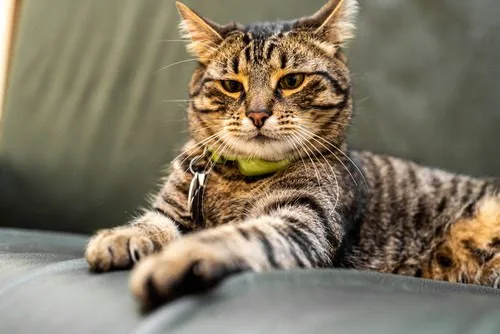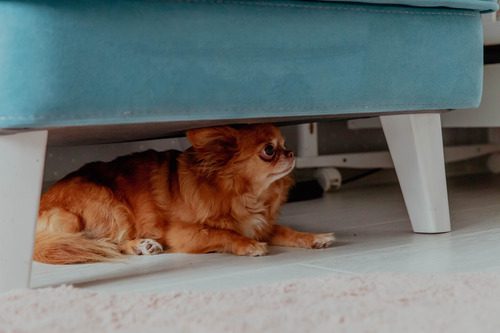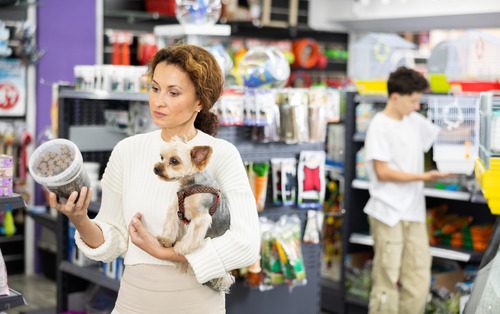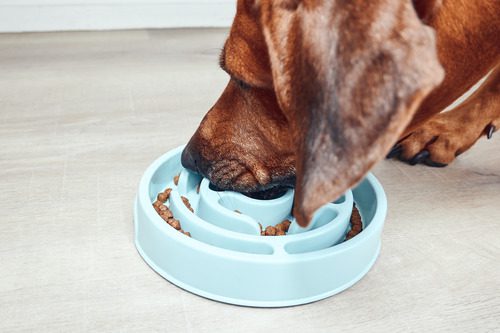Why Do Cats “Make Biscuits”?
Cats have a unique way of expressing themselves, and one of their most charming behaviors is often called “making biscuits.” This rhythmic kneading action, where cats push their paws alternately against a soft surface, often resembles the motions of kneading dough. But why do cats make biscuits? Understanding this adorable habit can deepen your bond with your feline friend and give you insight into their emotions and needs. At Brown Veterinary Hospital in Terre Haute, IN, we are here to help you understand your cat’s behaviors better. If you have any questions or concerns, please call us at 812-645-0715 or book an appointment online.

The Origins of “Making Biscuits”
Kneading is an instinctive behavior that starts in kittenhood. When kittens nurse, they knead their mother’s belly to stimulate milk flow. This early association with comfort and nourishment often carries into adulthood. Even though adult cats no longer need to nurse, the motion remains a comforting action, reminding them of their early days with their mother. This behavior shows that your cat feels safe and content.
Emotional Connection and Comfort
Cats often knead when they are feeling particularly relaxed or happy. You might notice your cat making biscuits when they are settling down for a nap or enjoying your company. This behavior is a sign of affection and trust. When your cat kneads you, they are expressing their comfort and happiness in your presence. It’s their way of showing that they feel secure and loved.
Marking Territory
Cats have scent glands in their paws, and kneading can also serve as a way for them to mark their territory. By pressing their paws into a surface, they release their scent, marking the area as their own. This behavior is a subtle way for cats to communicate with other animals and assert their presence in their environment.
Preparing a Nest
In the wild, cats often knead to prepare a soft, comfortable nest for sleeping or giving birth. This instinctual behavior ensures that they have a cozy and safe place to rest. Even though domestic cats no longer need to prepare nests in the same way, the kneading action remains a part of their natural behavior.
Stretching and Exercise
Kneading also provides a good stretch for a cat’s muscles. The repetitive motion helps to flex and stretch their paws and forelimbs, keeping them agile and limber. This action is not only comforting but also physically beneficial for your cat, contributing to their overall well-being.
A Sign of Health and Well-Being
When your cat makes biscuits, it can be a positive indicator of their health and well-being. Content and relaxed cats are more likely to engage in kneading. If your cat frequently kneads and appears happy and comfortable, it is often a sign that they are feeling good both physically and emotionally.
When to Be Concerned
While kneading is generally a healthy and normal behavior, excessive kneading can sometimes indicate underlying issues. If your cat suddenly starts kneading more than usual or seems distressed while doing so, it might be worth discussing with your veterinarian. In rare cases, changes in kneading behavior can be a sign of stress or discomfort.
How to Handle Kneading
It’s important to understand that kneading is a natural and comforting behavior for cats. However, it can sometimes be uncomfortable for pet owners, especially if your cat kneads with their claws out. Here are a few tips on how to handle kneading:
- Keep Your Cat’s Nails Trimmed: Regularly trimming your cat’s nails can prevent discomfort from sharp claws.
- Provide a Soft Surface: Encourage your cat to knead on soft blankets or designated cat beds to minimize any discomfort.
- Gently Redirect: If your cat’s kneading becomes too much, gently redirect them to another activity or move them to a more appropriate surface.
Encouraging Positive Behavior
Positive reinforcement can help encourage your cat’s natural behaviors in a way that is comfortable for both of you. Reward your cat with treats or affection when they knead in appropriate places. This helps them understand where they can knead without causing discomfort.
Embracing the Kneading Habit
Understanding why cats make biscuits can help you appreciate this endearing behavior and strengthen your bond with your feline friend. Kneading is a sign of comfort, happiness, and well-being. By providing a safe and supportive environment, you can encourage your cat to express their natural behaviors in a healthy way. If you have any questions about your cat’s behavior or need advice, feel free to call Brown Veterinary Hospital at 812-645-0715 or book an appointment online. We are here to support you and your beloved pet in every way possible.
Recent Posts
About Brown Veterinary Hospital
We are here to serve as your partner in keeping your four-legged family member healthy, ensuring you have all the tools you need to provide them with a lifetime of outstanding care. Our animal hospital in Terre Haute offers a full range of services to nurture and extend your pet’s life, from wellness and preventative care to critical care, exotic pet care, and dermatology.





